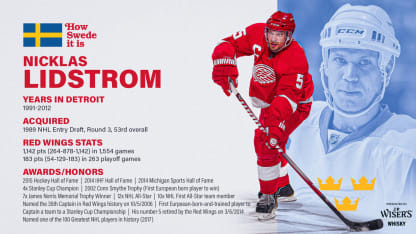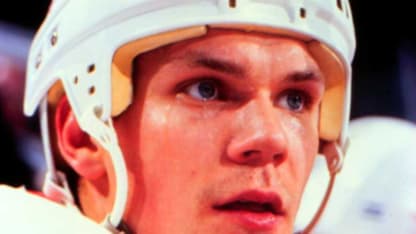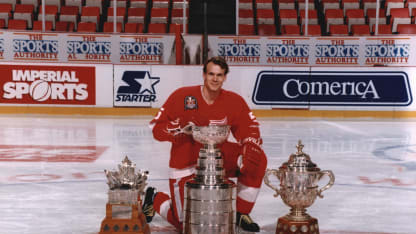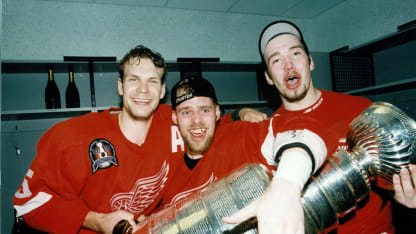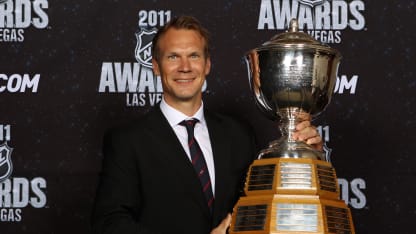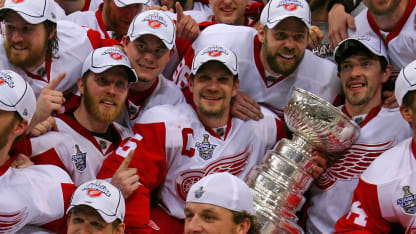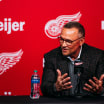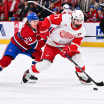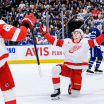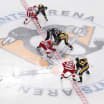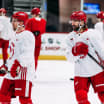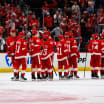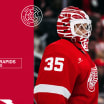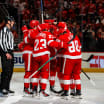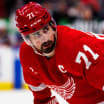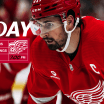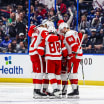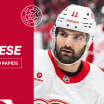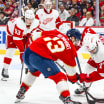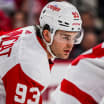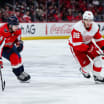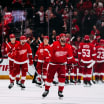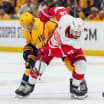Looking back on his Hall of Fame career, it’s hard to imagine 18-year-old Nicklas Lidstrom was passed over in the 1988 NHL Entry Draft, but it’s true.
“I was just a late bloomer. I wasn’t one of the best players at the age of 15 or 16. It took me a couple of years to develop into the player I eventually turned into,” Lidstrom said. “When I moved away from home at the age of 16, I started to develop more and more. When I was 18, I felt I had developed a lot in those two years. I was kind of flying under the radar because I wasn’t on the (junior) national team until I was 18.
“At that time, there weren’t many scouts looking at players so if you weren’t on the national team, you weren’t recognized as much, or seen as much.”
Being an unknown allowed Lidstrom to work on his game without the expectations or pressure a player feels, especially during their draft year. He loved the game, but he wasn’t consumed with becoming an NHL player. His objective was simple: get better.
When he made Vasteras, his hometown SHL team, his life changed.
“I made the men’s team in Vasteras, at the age of 18, and started playing against men. Christer Rockstrom, the scout at the time for the Red Wings, he was actually friends with one of the players on my team. This player told Chris, ‘You should come and watch this kid, he’s pretty good. He’s a skinny guy but he’s pretty good.’ That’s how it started. That’s how Christer started watching me.
“Donnie Meehan came over, he was looking at some other players, and he eventually became my agent. He got a hold of Christer and Christer told him — eventually told him, he didn’t tell him at first — but eventually told him that he was there scouting me but he couldn’t tell anyone. So that’s how I ended up with Donnie Meehan. That’s when I realized I had a shot at making the dream, or at least be seen by a scout that I could take the next step to get drafted.”
Rockstrom, a modest man, downplays his role in “discovering” Nick Lidstrom. He admits he did scout him and liked what he saw, but drafting Lidstrom was not part of his job.
“Everybody saw him a year before he got drafted and he went through the draft but the draft was only three rounds for (European) players like that,” Rockstrom said. “So, we saw him and he wasn’t one of the players picked in the top three rounds so the next year, he had made a lot of progress.”
What Rockstrom liked in 19-year-old Lidstrom’s game was his hockey sense and (unflappable) personality. He couldn’t really find a glaring weakness in his game.
“It’s more Neil (Smith) and Kenny (Holland) than me. I recognized him obviously. I had him high on my list but then they were the people that picked and decided,” Rockstrom said. “We had meetings like we always had so it’s teamwork. I find the player, I recognize the talent, I bring it to the next guy and then they make the final decision. I’m a piece of the puzzle but I’m not the decision maker.
“A player like Nick, he keeps scouts alive. He gave me a chance to continue on working. He helped me. I didn’t help him. He would have been drafted by somebody else and would have been good somewhere else if we didn’t pick him. We were lucky we got him. I’m happy I was there when we did it.”
Despite Rockstrom’s insistence Lidstrom was not his pick, many in the Red Wings organization have a different view.
“The person that deserves 90 percent of the credit for Nick is Christer Rockstrom. He was through and through a Christer Rockstrom pick,” said Red Wings senior vice president Jimmy Devellano. “Neil Smith was the chief scout at the time and I know Christer took Neil to see him. He liked him. We liked him. He’s really a Christer Rockstrom-Neil Smith choice.
“It was the third round so I don’t know, we really got lucky. Christer told me, I was the manager, he told me, ‘Jimmy, he needs to stay in Sweden two years.’ Now that bothered me a little bit. I thought maybe one year but two? But he said, ‘He’s got everything but he needs to get bigger and stronger. He needs to get bigger.’ So, third-round pick, there was really no pressure, nobody knew who the hell he was. He came over and holy s*, we had (Steve) Yzerman and (Sergei) Fedorov came at the same time. Holy (Cow), now you’ve got three real players. Then add (Vladimir) Konstantinov to the mix. Then we took off.”
Lidstrom was looking forward to attending the 1989 NHL Entry Draft in Minnesota. It would be his first time in North America and he was convinced the Red Wings were going to pick him, since no other NHL team contacted him, but the Red Wings had another idea.

